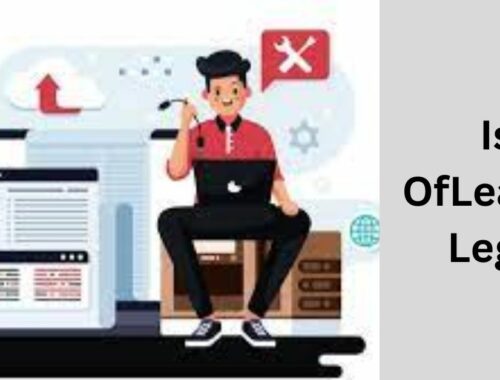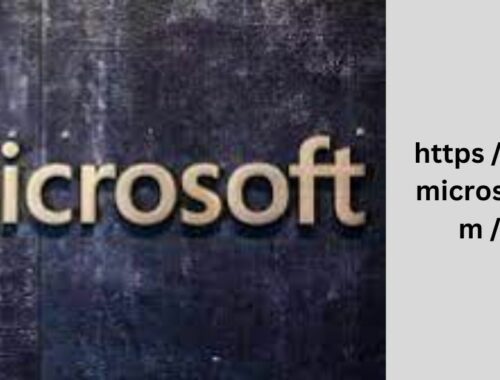
The Power of Anonymous Online Communication: Unveiling the Benefits and Challenges
The advent of the internet has dramatically transformed the way we communicate, share information, and interact with one another. Among the numerous developments facilitated by the digital age, anonymous online communication stands out as a potent and intriguing phenomenon.
It enables individuals to express themselves freely without revealing their true identities. This article explores the concept of anonymous online communication, delving into its advantages, drawbacks, and its impact on society.
The Nature of Anonymity Online
Anonymous online communication allows users to participate in discussions, forums, social media platforms, and various online communities without disclosing their personal details.
Users often adopt pseudonyms or handle names to maintain anonymity. This anonymity grants them a sense of security, liberating them from fear of judgment or repercussions for their thoughts and opinions.
Advantages of Anonymous Online Communication
Freedom of Expression: Anonymity empowers individuals to express themselves more openly. It creates an environment where people can discuss sensitive topics, seek advice, or share personal experiences without the fear of facing discrimination or backlash.
Protection from Retaliation: In certain circumstances, users might fear exposing their identities due to concerns about retaliation or harassment. Anonymity shields them from potential threats and preserves their online safety.
Whistleblowing and Activism: Anonymous online platforms have played a crucial role in facilitating whistleblowing activities and activism. Individuals who wish to expose wrongdoing or corruption can do so without fear of retribution.
Mental Health Support: Anonymity can be beneficial for users seeking mental health support. Online forums allow people to discuss their struggles openly, potentially alleviating feelings of isolation and fostering a sense of community.
Challenges and Risks
Toxic Behavior: Anonymity can bring out the worst in some individuals, leading to the proliferation of online harassment, hate speech, and cyberbullying. The lack of accountability may embolden certain users to engage in harmful behavior without consequences.
Disinformation and Trolling: Anonymous users may exploit their freedom to spread false information or engage in disruptive behaviors like trolling. This can lead to the spread of misinformation and the deterioration of healthy online discussions.
Impeding Responsible Dialogue: Anonymity can hinder constructive debates as individuals may resort to personal attacks instead of engaging in substantive discussions.
Criminal Activities: The cloak of anonymity can be misused by malicious actors to carry out illegal activities, such as hacking, cyberstalking, or distributing illegal content.
Balancing Anonymity with Responsibility
While anonymity online offers several advantages, it is essential to strike a balance between anonymity and responsible behavior. Platforms can implement measures such as verification systems, moderation, and community guidelines to minimize abusive behavior and maintain a healthy online environment.
The Psychology of Anonymity: Understanding the Behavior Behind the Mask
In this section, we delve into the psychological factors that influence how people behave when granted anonymity online. We explore concepts such as the online disinhibition effect, which can lead individuals to act in ways they wouldn’t in face-to-face interactions.
We also discuss the role of perceived anonymity in fostering a sense of detachment from consequences and how this affects online communication dynamics.
Anonymity and Online Activism: The Rise of Anonymous Collectives
Anonymous online communities have gained notoriety for their involvement in various forms of digital activism. This section investigates the emergence of hacktivist groups and the motivations behind their actions.
We analyze the impact of these groups on issues like internet censorship, human rights, and corporate accountability. Additionally, we consider the ethical implications of their activities and the fine line between activism and cybercrime.
The Dark Side of Anonymity: Unmasking Cyberbullying and Online Harassment
Anonymity has a darker side, as it often facilitates cyberbullying and online harassment. This section explores the prevalence and consequences of these behaviors in online spaces.
We discuss the psychological toll on victims, the challenges faced by platforms in moderating such content, and the need for a multifaceted approach to address this growing issue.
The Role of Anonymity in Whistleblowing and Journalism
Whistleblowing plays a vital role in holding organizations and governments accountable. In this section, we investigate the historical significance of anonymous sources in journalism, shedding light on famous cases that have changed the course of history.
We also discuss the technological advancements that aid in secure anonymous communication, the importance of whistleblower protection, and the ongoing debates around government surveillance and press freedom.
Anonymity in Healthcare and Mental Health Support
The internet has provided a platform for individuals to seek support and guidance for various health-related issues while maintaining anonymity.
In this section, we explore the impact of online mental health communities, peer support groups, and anonymous counseling services. We also examine the potential benefits and risks of anonymous health-related discussions, as well as the importance of professional oversight and verification mechanisms.
Striking the Right Balance: Managing Anonymity on Online Platforms
To maintain healthy online environments, platforms must find the delicate balance between preserving anonymity and mitigating its potential negative consequences.
In this section, we discuss the various strategies that platforms can employ to curb toxic behavior while still protecting users’ anonymity. We examine the role of AI-based content moderation, community guidelines, user reporting systems, and the importance of fostering digital literacy and responsible online behavior.
The Legal Landscape of Online Anonymity:
This section examines the legal aspects surrounding online anonymity, focusing on how various countries and jurisdictions handle anonymity-related issues.
We explore the right to privacy and the challenges posed by balancing this right with concerns related to cybercrime, hate speech, and national security. We also discuss landmark court cases that have shaped the legal understanding of online anonymity, as well as the responsibilities of internet service providers and social media platforms in safeguarding user privacy.
Anonymous Social Media Platforms: Pros, Cons, and Societal Impact
The rise of anonymous social media platforms has sparked debates about the impact of unrestricted communication. In this section, we explore the unique characteristics of these platforms and the reasons why users are drawn to them.
We discuss the potential benefits of enabling anonymous conversations, such as fostering genuine discussions and protecting vulnerable populations. However, we also analyze the challenges these platforms face in maintaining a healthy user base, preventing abuse, and tackling disinformation and harmful content.
Conclusion
Anonymous online communication is a complex and multifaceted phenomenon that has profoundly impacted society.
By understanding the psychological underpinnings, exploring the different uses and misuses of anonymity, and implementing responsible practices on online platforms, we can harness its power for positive outcomes while mitigating its adverse effects on individuals and communities.
Also Read:
You May Also Like

Unveiling the Is OfLeaked Legit”: Navigating the Controversy
December 6, 2023
Coated Vs Uncoated Guitar Strings – Which One Is Better?
February 20, 2023

